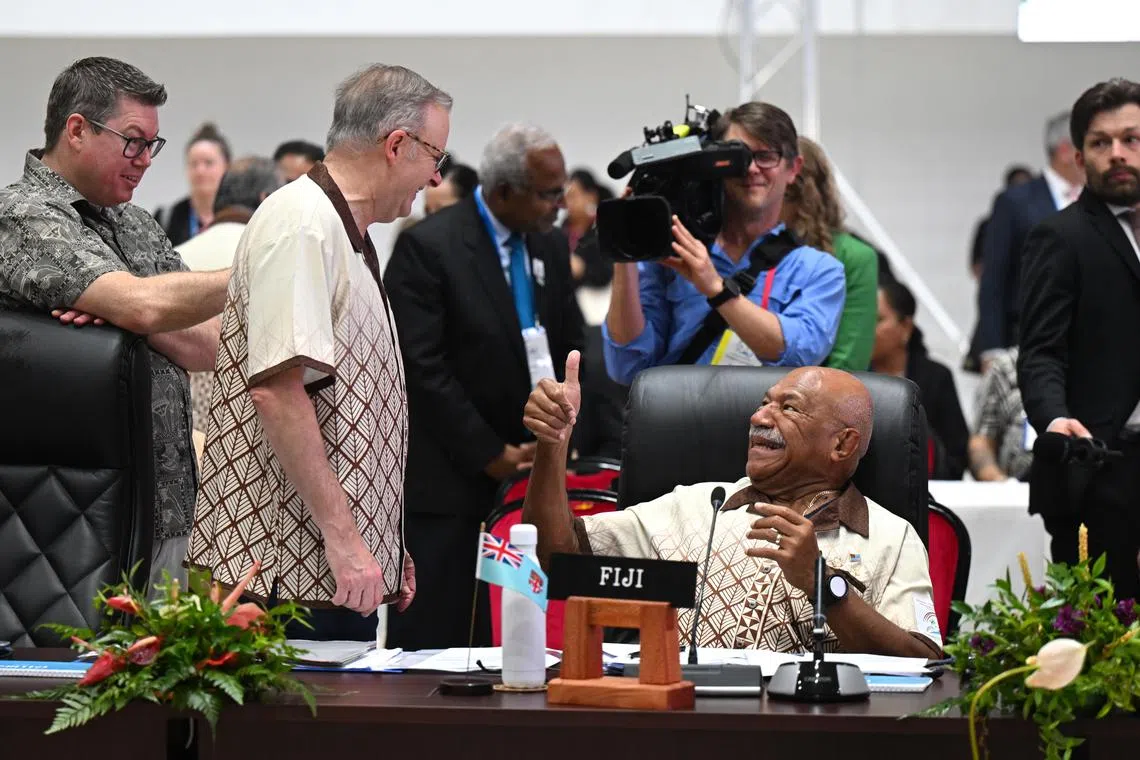For subscribers
A week of awkward regional diplomacy for Australia
Canberra’s South Pacific policing initiative and defence cooperation agreement with Indonesia seek to preserve the US-led order. But is blocking China really what other regional countries want?
Sign up now: Get ST's newsletters delivered to your inbox

Australian PM Anthony Albanese speaking to PM of Fiji Sitiveni Rabuka at the 53rd Pacific Islands Forum Leaders Meeting in Nuku’alofa, Tonga, on Aug 28.
PHOTO: EPA-EFE
Last week was a busy time in Australia’s regional diplomacy. On Aug 28 in Tonga, Prime Minister Anthony Albanese won agreement from Australia’s small Pacific Island neighbours to a new Australian plan to coordinate and integrate police training and operations across the South Pacific.
Both initiatives are squarely aimed at what has become the primary objective, and increasingly the only objective, of Australia’s regional diplomacy. They are about resisting the Chinese challenge to America’s place as the leading power in Asia, which Canberra regards as simply essential to Australia’s future. But, in each case, the initiatives themselves and the atmospherics surrounding them only served to highlight the deep problems with this approach to the profound strategic transformation now under way in Asia.



